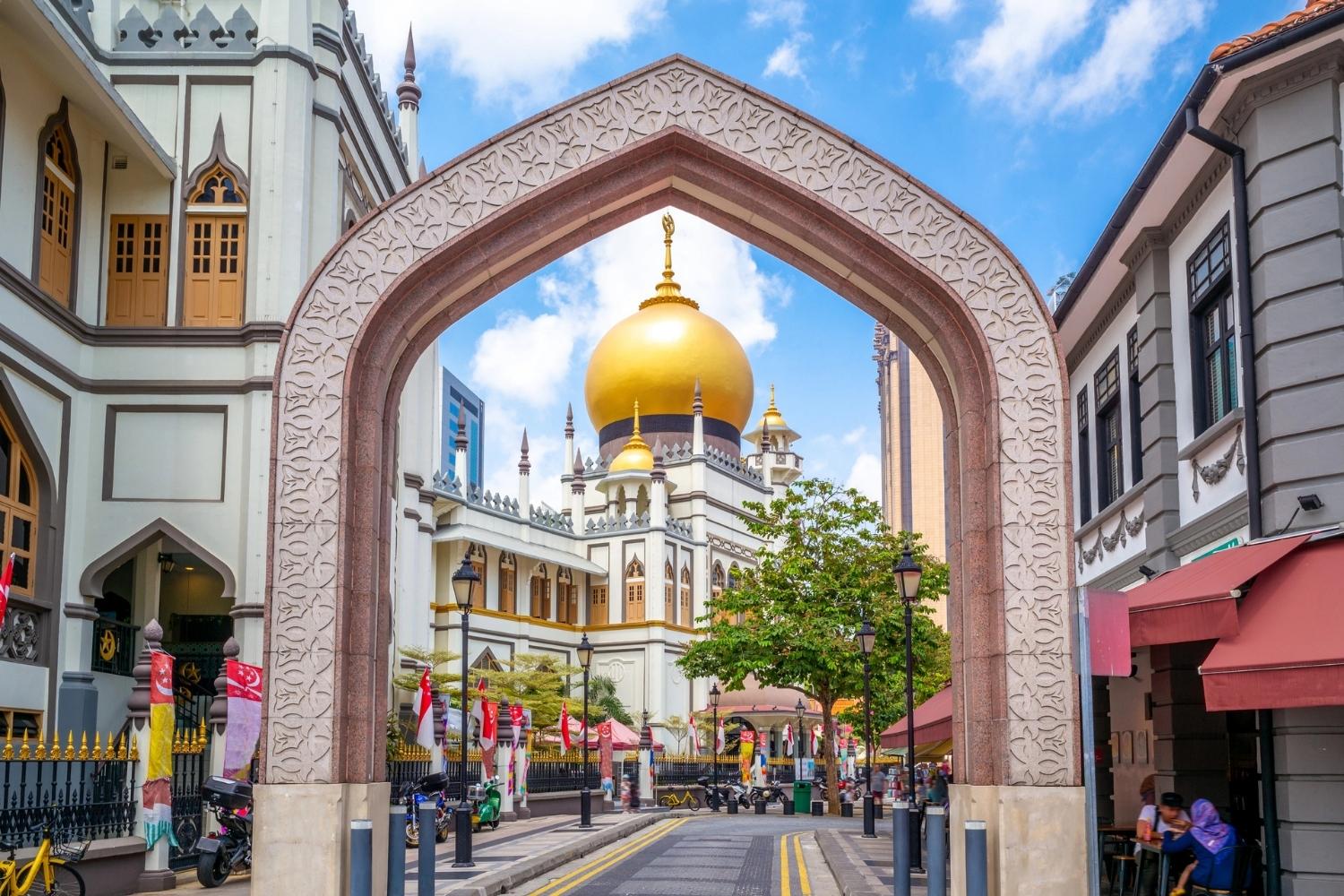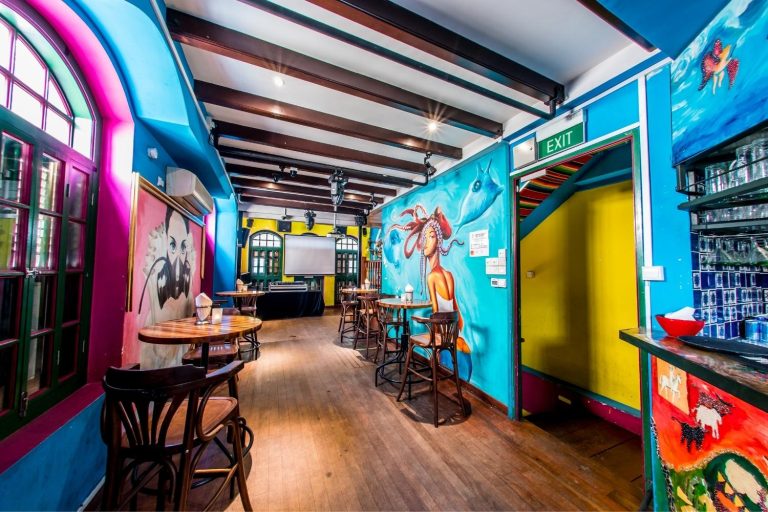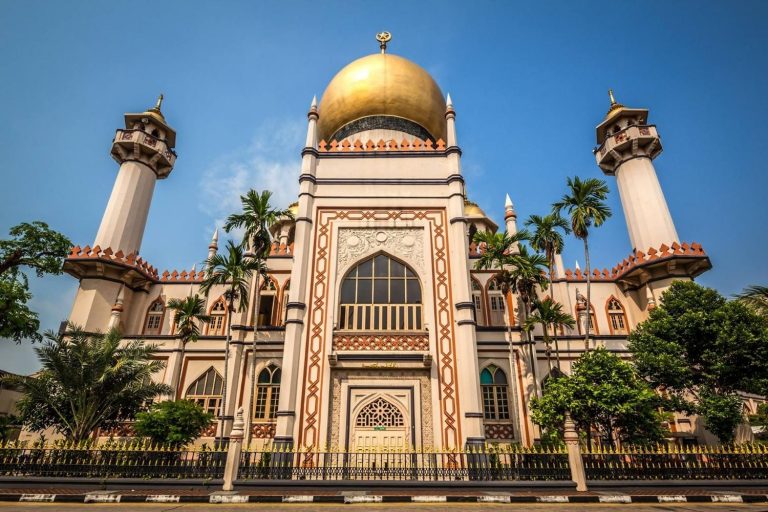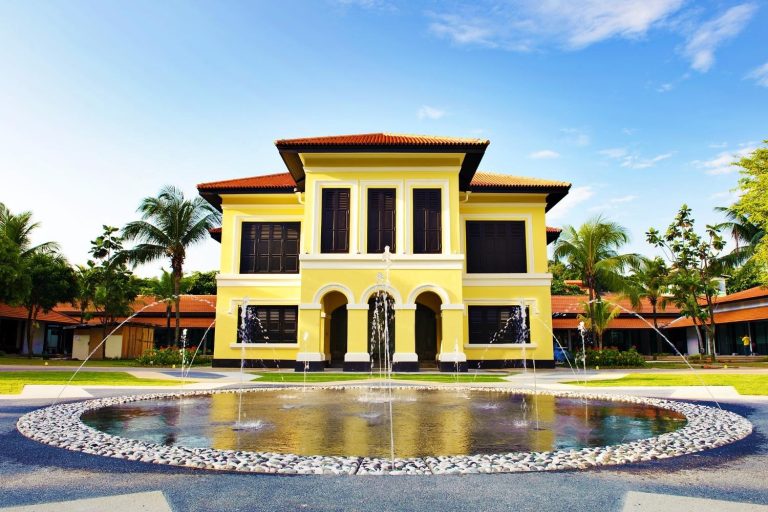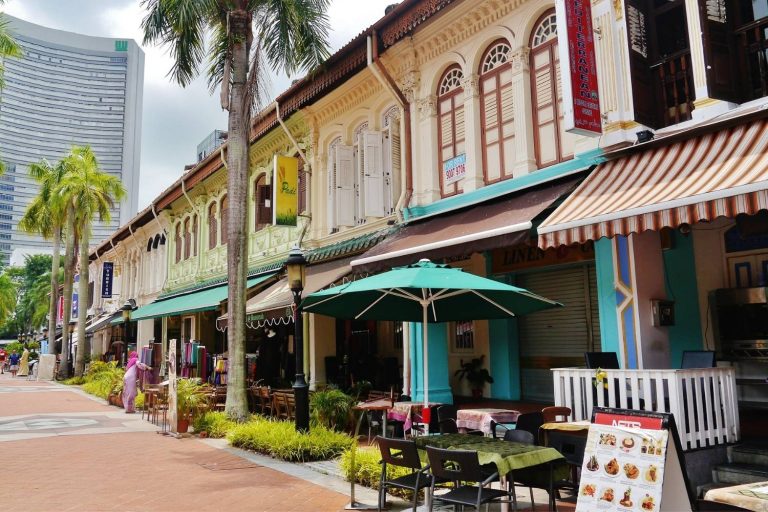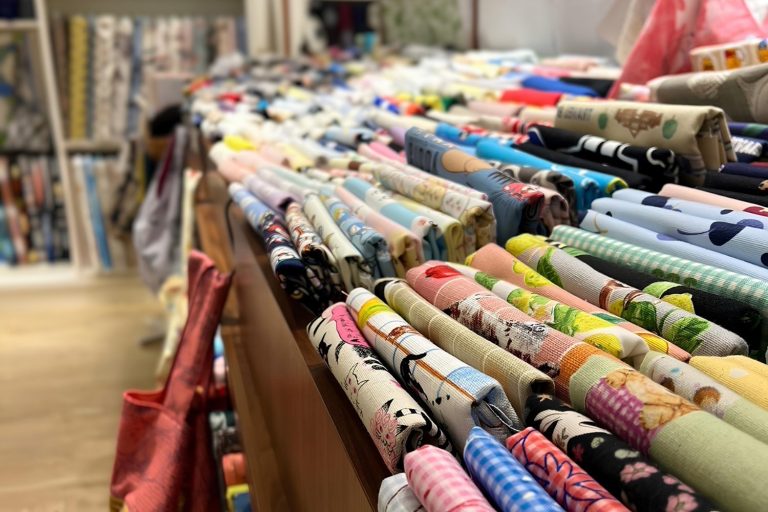Arab Street: Textiles, Perfumes & Middle Eastern Delights
Exploring Arab Street: A Cultural Hub
Arab Street stands as one of Singapore’s most captivating cultural destinations, where centuries-old traditions blend seamlessly with modern urban life. This historic quarter, nestled within the Kampong Glam district, offers visitors an authentic glimpse into the rich heritage of Singapore’s Arab and Malay communities. The street pulses with energy from dawn to dusk, as locals and tourists alike wander through its narrow lanes, absorbing the intoxicating mix of aromatic spices, colorful textiles, and melodic calls to prayer from the nearby mosque.
Walking along Arab Street feels like stepping into a living museum where every corner tells a story. The area has maintained its authentic character despite Singapore’s rapid modernization, making it a precious cultural enclave. Street vendors still call out their wares in multiple languages, while traditional shophouses display their goods in ways that have remained unchanged for generations. The atmosphere here is distinctly different from Singapore’s gleaming shopping districts, offering instead a more intimate and culturally rich shopping experience.
Overview of Arab Street
Arab Street stretches approximately 600 meters through the heart of Kampong Glam, connecting North Bridge Road to Beach Road. The street was established in the early 19th century when Sir Stamford Raffles designated this area for Arab and Muslim traders. Today, it remains a bustling commercial hub where traditional businesses coexist with trendy cafes and boutique hotels. The street’s unique charm lies in its ability to transport visitors to a different era while still catering to contemporary needs and tastes.
Cultural Significance and Heritage
The cultural importance of Arab Street extends far beyond its commercial activities. This area serves as the spiritual and cultural center for Singapore’s Muslim community, anchored by the magnificent Sultan Mosque with its golden domes. The street has witnessed countless religious festivals, cultural celebrations, and community gatherings over the decades. Traditional practices like carpet weaving, perfume blending, and textile trading continue to thrive here, passed down through generations of skilled artisans and merchants.
Vibrant Shopping Experience
Shopping along Arab Street offers an adventure for all the senses. Unlike conventional retail environments, here you can touch fabrics, smell exotic perfumes, and negotiate prices in the time-honored tradition of bazaar shopping. The shops are typically family-owned businesses where personal service and expert knowledge come standard. Many shopkeepers are third or fourth-generation merchants who possess deep understanding of their products and can share fascinating stories about their origins and uses.
Textile Shops: A Fabric Paradise
Arab Street has earned its reputation as Singapore’s premier destination for textile shopping, attracting fashion designers, seamstresses, and fabric enthusiasts from across the region. The concentration of textile shops here is unmatched anywhere else in Singapore, offering an incredible variety of fabrics that range from everyday cottons to the most luxurious silks and brocades. These shops have been serving the local community for decades, and many have expanded their reach to supply fabrics throughout Southeast Asia.
The textile trade here operates much like it has for generations, with merchants displaying their finest wares in shop windows and rolling out bolts of fabric for customers to examine closely. The shopping experience is highly personal, with shop owners taking time to understand each customer’s specific needs and preferences. Whether you’re looking for traditional batik prints, contemporary designer fabrics, or specialized materials for cultural costumes, Arab Street’s textile merchants can usually fulfill even the most specific requests.
Types of Textiles Available
The variety of textiles available along Arab Street is truly staggering, encompassing fabrics from across Asia and the Middle East. Silk fabrics dominate many displays, including Chinese silk brocades, Indian silk saris, and Thai silk in jewel tones. Cotton fabrics range from basic prints suitable for everyday wear to intricate batik designs that represent traditional Malay and Indonesian artistry. Visitors can also find specialty fabrics like organza, chiffon, velvet, and lace, often at prices significantly lower than those in conventional fabric stores.
Custom Fabric Options
Many textile shops along Arab Street offer customization services that go beyond simple alterations. Experienced tailors can create bespoke garments from scratch, working closely with customers to achieve their vision. Some shops specialize in traditional costumes for cultural performances or religious ceremonies, while others focus on contemporary fashion. The Textile Centre Singapore represents the pinnacle of this customization service, housing multiple vendors under one roof who can handle everything from fabric selection to final fitting.
Popular Textile Shops
Several textile shops have become legendary among Singapore’s sewing community for their exceptional quality and service. These establishments typically maintain extensive inventories and employ knowledgeable staff who can advise on fabric selection, care instructions, and suitability for different projects. Many of these shops have been operating for decades and have built loyal customer bases that span multiple generations. The relationships between shop owners and regular customers often extend beyond mere commercial transactions to include personal friendships and mutual respect.
Perfume Customization: Sifr Aromatics
Among Arab Street’s many attractions, the art of perfume customization stands out as one of the most unique and personal experiences available to visitors. Sifr Aromatics has established itself as the premier destination for bespoke fragrance creation, offering customers the opportunity to craft their own signature scents. This ancient art form, which has roots stretching back thousands of years in Middle Eastern culture, continues to thrive in this modern setting through the expertise of skilled perfumers who understand both traditional techniques and contemporary preferences.
The process of creating a custom perfume at Sifr Aromatics goes far beyond simply mixing different scents together. It involves understanding the customer’s personality, lifestyle, and preferences to create a fragrance that truly represents their individual character. The experience typically takes between one to two hours, during which customers work closely with expert perfumers who guide them through the complex world of fragrance notes, base oils, and scent combinations.
Overview of Sifr Aromatics
Sifr Aromatics occupies a special place in Arab Street’s commercial landscape as one of the few shops dedicated entirely to the art of perfume creation. The shop’s interior reflects the mystique of traditional perfumery, with countless bottles of essential oils, rare ingredients, and finished fragrances lining the walls. The atmosphere is intimate and focused, designed to help customers concentrate on the subtle differences between various scents and combinations. The shop’s reputation extends well beyond Singapore, attracting perfume enthusiasts from around the world.
The Art of Perfume Making
Perfume making at Sifr Aromatics follows traditional Middle Eastern methods that have been refined over centuries. The process begins with understanding the three layers of fragrance: top notes that provide the initial impression, middle notes that form the heart of the scent, and base notes that provide lasting depth and complexity. Master perfumers can identify hundreds of different scent components and understand how they interact with each other and with individual skin chemistry to create unique fragrances.
Bespoke Consultation Process
The consultation process at Sifr Aromatics is highly personalized and educational, beginning with a detailed discussion about the customer’s scent preferences, lifestyle, and intended use for the fragrance. Perfumers then guide customers through a series of scent tests, helping them identify which fragrance families appeal to them most. The actual blending process involves careful measurement and testing, with multiple iterations often required to achieve the perfect balance. Customers leave with their own unique fragrance and the knowledge of how it was created.
Culinary Delights: Food and Cafes
Arab Street’s culinary scene reflects the diverse cultural influences that have shaped this historic neighborhood over the centuries. The area offers an impressive array of dining options, from traditional Middle Eastern and Malay cuisine to contemporary fusion restaurants that blend various culinary traditions. Food enthusiasts can spend entire days exploring the different flavors and cooking styles represented along the street, each meal offering insights into the cultural heritage of Singapore’s various communities.
The dining experience here extends beyond just the food itself to encompass the atmosphere, service style, and cultural context of each establishment. Many restaurants and cafes have been family-owned for generations, with recipes and cooking techniques passed down through the years. This continuity creates an authentic dining experience that’s increasingly rare in Singapore’s rapidly changing culinary landscape.
Local Cuisine and Specialties
The local cuisine along Arab Street showcases the best of Malay, Arab, and Indian Muslim cooking traditions. Signature dishes include nasi biryani with fragrant basmati rice and tender meat, murtabak filled with eggs and onions, and various curry preparations that demonstrate the complex spice blending skills of local chefs. Many restaurants also serve traditional Middle Eastern dishes like hummus, falafel, and grilled meats, prepared according to authentic recipes that have remained unchanged for generations.
Popular Cafes and Eateries
Several cafes and restaurants along Arab Street have achieved legendary status among both locals and tourists for their exceptional food and unique atmospheres. These establishments often feature traditional decor, comfortable seating areas, and menus that reflect the multicultural nature of the neighborhood. Bussorah Street cafes provide particularly charming dining experiences, with their pedestrian-friendly environment and outdoor seating options that allow diners to watch the constant flow of visitors and locals.
Street Food Options
Street food culture thrives along Arab Street, with various vendors offering quick, delicious, and affordable meals throughout the day. These food stalls typically specialize in one or two dishes that they’ve perfected over years of practice, resulting in consistently high quality despite the informal setting. Popular street food options include satay grilled over charcoal, fresh fruit juices, traditional sweets, and various fried snacks that make perfect accompaniments to a day of shopping and sightseeing.
Historic Landmarks: The Sultan Mosque
The Sultan Mosque stands as Arab Street’s most iconic landmark and serves as the spiritual heart of Singapore’s Muslim community. This magnificent structure, with its distinctive golden domes and towering minarets, dominates the neighborhood’s skyline and provides a stunning focal point for the entire area. Built in 1824 during the early years of Singapore’s development as a British trading post, the mosque represents one of the oldest and most significant religious buildings in the country.
Visitors to the Sultan Mosque often find themselves moved by the building’s serene atmosphere and architectural beauty, regardless of their religious background. The mosque welcomes respectful visitors during designated hours, offering them the opportunity to learn about Islamic culture and architecture while experiencing the peaceful environment that has attracted worshippers for nearly two centuries. The building’s historical significance extends beyond its religious function to encompass its role as a community center and cultural landmark.
History of Sultan Mosque
The mosque’s history is intimately connected with the early development of Singapore as a major trading port. Sultan Hussein Shah of Johor, who signed the treaty that established Singapore as a British trading post, requested that a mosque be built to serve the growing Muslim community. The original structure was relatively modest, but it was rebuilt and expanded in the 1920s to create the magnificent building that stands today, designed to accommodate the area’s growing population.
Architectural Features
The Sultan Mosque Singapore showcases a unique blend of architectural styles that reflect the diverse cultural influences present in early Singapore. The building features traditional Islamic elements like pointed arches, geometric patterns, and calligraphy, combined with colonial-era construction techniques and materials. The famous golden domes were created using thousands of glass bottles donated by local Muslims, demonstrating the community’s collective commitment to creating something beautiful and meaningful.
Visiting the Mosque
Visitors to the mosque must observe appropriate dress codes and behavioral guidelines out of respect for the religious nature of the site. The mosque provides guidelines for visitors and offers educational materials that explain Islamic practices and beliefs. Guided tours are sometimes available, providing deeper insights into the building’s history, architecture, and cultural significance. The experience of visiting during prayer times can be particularly moving, as the sound of the call to prayer echoes through the surrounding streets.
Haji Lane: Boutique Shopping and Street Art
Just a short walk from Arab Street’s main thoroughfare, Haji Lane represents a fascinating contrast between traditional commerce and contemporary creative expression. This narrow alley has transformed over the past decade from a quiet residential street into one of Singapore’s most Instagram-worthy destinations, famous for its colorful street art, independent boutiques, and trendy cafes. The transformation demonstrates how historic neighborhoods can evolve while maintaining their essential character and charm.
Haji Lane shopping offers a completely different experience from the traditional shops found on Arab Street proper. Here, young entrepreneurs and creative professionals have established boutiques that reflect contemporary fashion trends, local design sensibilities, and global cultural influences. The lane attracts a younger demographic that appreciates both the area’s historic significance and its modern creative energy.
Unique Boutiques and Shops
The boutiques along Haji Lane specialize in items that are difficult to find elsewhere in Singapore, including vintage clothing, handmade jewelry, independent fashion labels, and unique home decor items. Many shop owners are designers themselves, creating original pieces that reflect their personal aesthetic and cultural background. The shopping experience here is highly personal, with store owners often available to discuss their products, share design inspiration, and provide styling advice.
Street Art and Culture
Haji Lane has become renowned for its vibrant street art scene, with building walls serving as canvases for local and international artists. The artwork changes regularly, ensuring that repeat visitors always discover something new and exciting. The street art ranges from large-scale murals that cover entire building sides to smaller, more intimate pieces tucked into corners and doorways. This artistic expression adds another layer of cultural richness to an already diverse neighborhood.
Visiting Tips for Haji Lane
The best times to visit Haji Lane are during late morning through early evening when most shops are open and the lighting is optimal for photography. The lane can become quite crowded during weekends and holidays, so weekday visits often provide a more relaxed experience. Visitors should be prepared for narrow walkways and limited parking, making public transportation the most practical option for reaching the area.
The Malay Heritage Centre
The Malay Heritage Centre serves as a crucial cultural institution that preserves and presents the rich heritage of Singapore’s Malay community. Housed in the beautifully restored Istana Kampong Glam, the former palace of the Malay royalty, the center provides visitors with comprehensive insights into Malay culture, history, and traditions. The building itself is a work of art, featuring traditional Malay architecture that has been carefully maintained and restored to its original grandeur.
The center’s mission extends beyond simple preservation to include education, community engagement, and cultural promotion. Through its various programs and exhibitions, the center helps ensure that Malay cultural traditions continue to thrive in Singapore’s multicultural society. The institution serves both the local Malay community and the broader public, fostering understanding and appreciation for this important aspect of Singapore’s cultural heritage.
Exhibitions and Programs
The Malay Heritage Centre visit offers access to permanent and rotating exhibitions that cover various aspects of Malay culture, from traditional crafts and music to contemporary art and social issues. Interactive displays allow visitors to engage with the material in meaningful ways, while multimedia presentations provide context and historical background. The center also hosts cultural performances, workshops, and educational programs that bring Malay traditions to life for visitors of all ages.
Cultural Significance
The center plays a vital role in preserving Malay cultural identity in Singapore’s rapidly changing social landscape. It serves as a repository for traditional knowledge, artifacts, and practices that might otherwise be lost to modernization. The institution also provides a platform for contemporary Malay artists and cultural practitioners to showcase their work and connect with their heritage in new and innovative ways.
Visitor Information
The center welcomes visitors throughout the week, with guided tours available in multiple languages. Educational programs can be arranged for school groups and cultural organizations, providing structured learning experiences that complement the self-guided exhibition areas. The center’s location within the historic Istana makes it an ideal starting point for exploring the broader Kampong Glam area.
Entertainment: Blu Jaz Cafe
Blu Jaz Cafe Singapore represents the contemporary entertainment side of Arab Street’s cultural offerings, providing a sophisticated venue for live music, social gatherings, and culinary experiences. This establishment has become a cornerstone of Singapore’s jazz scene, attracting both local musicians and international performers who appreciate the intimate setting and enthusiastic audiences. The cafe successfully bridges the gap between Arab Street’s traditional character and its evolving identity as a modern cultural destination.
The venue’s atmosphere combines the relaxed ambiance of a neighborhood cafe with the excitement of a live music venue, creating a unique environment that appeals to diverse audiences. Regular patrons include jazz enthusiasts, cultural tourists, local residents, and young professionals who appreciate the combination of good food, excellent music, and authentic atmosphere that Blu Jaz consistently delivers.
Overview of Blu Jaz Cafe
Blu Jaz Cafe occupies a restored shophouse that maintains many original architectural features while incorporating modern amenities necessary for a contemporary entertainment venue. The interior design reflects the building’s heritage while creating comfortable spaces for both dining and live performances. The cafe’s commitment to supporting local musicians has made it an important cultural institution that contributes to Singapore’s vibrant arts scene.
Live Music Events
The cafe hosts live music performances several nights each week, featuring genres that range from traditional jazz to contemporary fusion styles. The performance schedule includes both established artists and emerging talents, providing a platform for musical development and cultural exchange. The intimate setting allows for close interaction between performers and audiences, creating memorable experiences that larger venues cannot replicate.
Food and Drink Offerings
Blu Jaz Cafe’s menu reflects the multicultural influences of its Arab Street location, featuring dishes that blend Western, Middle Eastern, and Asian flavors. The bar program emphasizes craft cocktails and carefully selected wines that complement both the food menu and the musical performances. The cafe’s commitment to quality extends to all aspects of the dining experience, from ingredient sourcing to presentation and service.
Frequently Asked Questions
What can visitors expect to find on Arab Street?
Visitors can expect to find a variety of traditional textile shops, perfume customization at Sifr Aromatics, diverse dining options, and significant cultural landmarks like the Sultan Mosque.
Is Arab Street suitable for shopping?
Yes, Arab Street is renowned for its textile shops and unique boutiques, offering a personal shopping experience with a wide range of fabrics and products.
What types of cuisine are available along Arab Street?
The area features a mix of Middle Eastern, Malay, and Indian Muslim cuisines, including dishes like nasi biryani, murtabak, and various curries.
What is the significance of the Sultan Mosque?
The Sultan Mosque is the spiritual heart of Singapore’s Muslim community and is known for its stunning architecture and historical importance.
Are there any notable cafes or entertainment venues on Arab Street?
Yes, Blu Jaz Cafe is a popular venue for live music and social gatherings, blending a relaxed cafe atmosphere with cultural entertainment.
Discovering the Essence of Arab Street
Arab Street stands as a testament to Singapore’s multicultural landscape, where history, tradition, and modernity coexist harmoniously. This vibrant street invites exploration and appreciation, offering a unique glimpse into the rich cultural tapestry that shapes the identity of the city.
